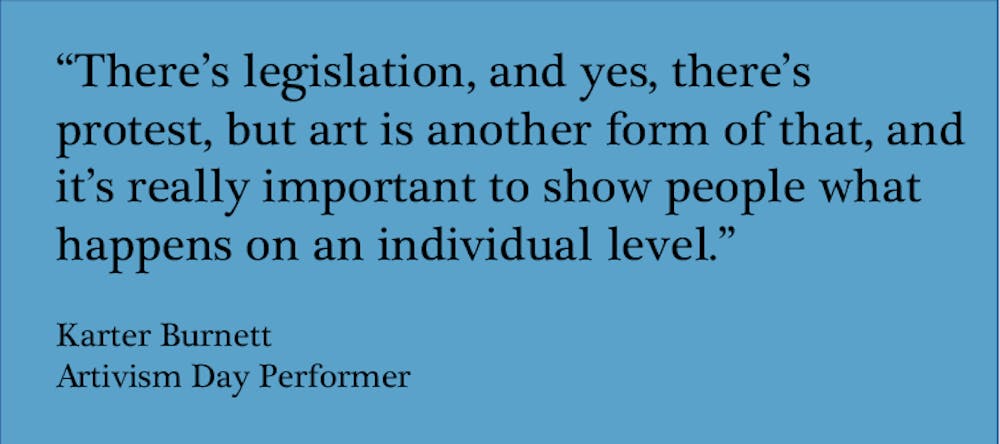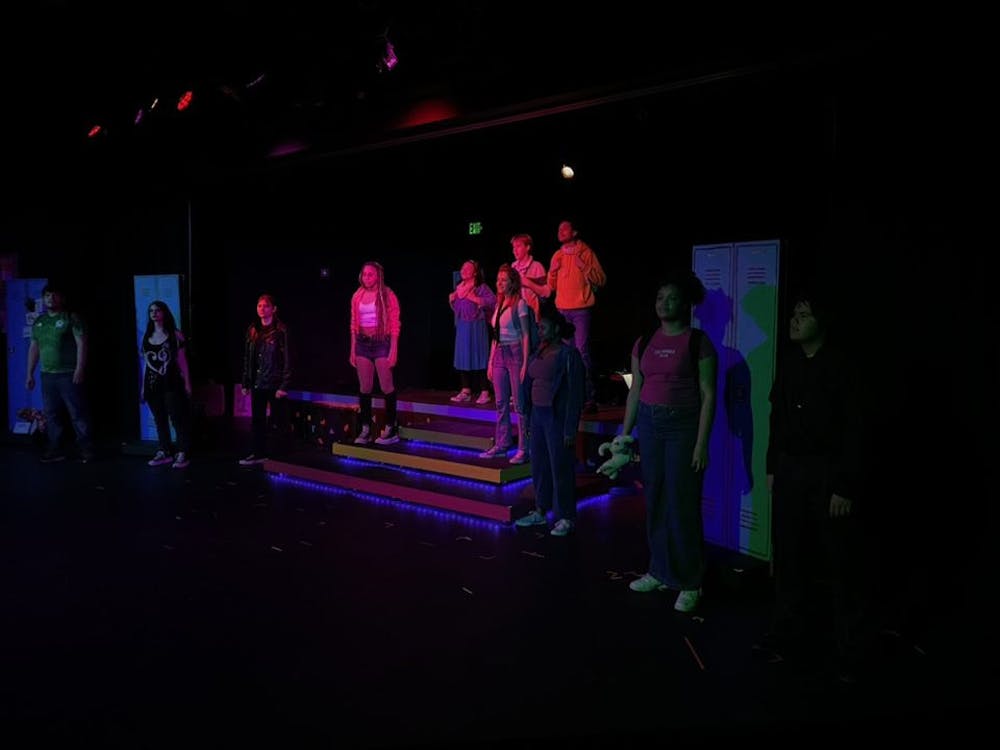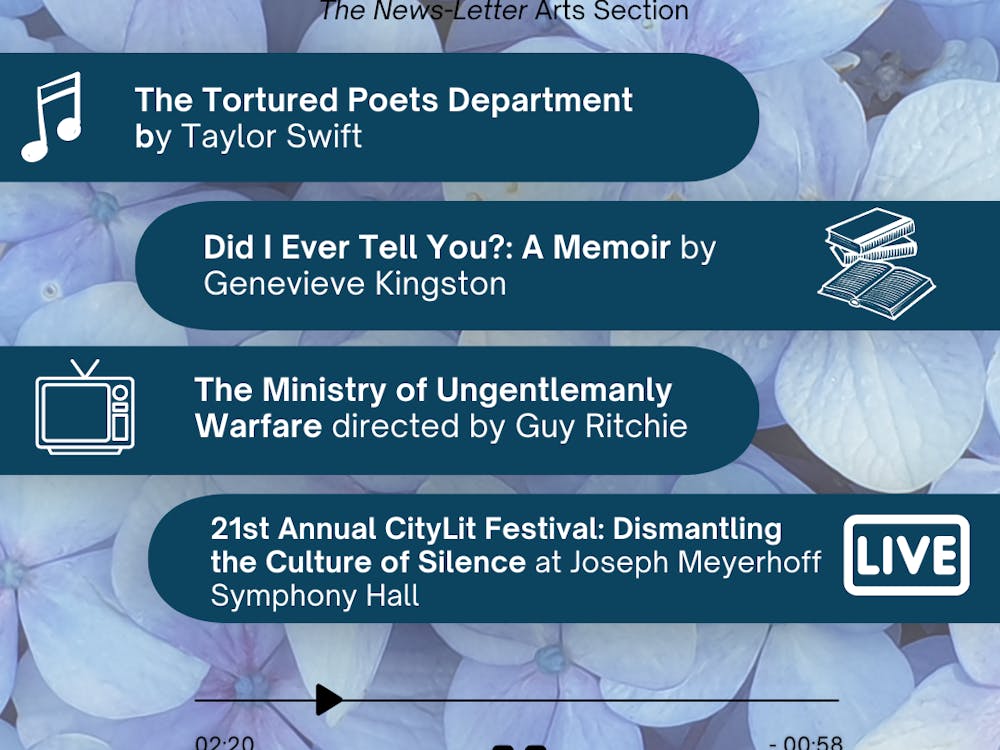A floormate, much to my chagrin, recently declared that the humanities and the arts were unimportant. He argued that being able to communicate well is great, but only science, technology, engineering and math are critical to civilization’s survival and success.
Artivism Day on March 4 at Impact Hub Baltimore in the Station North Arts and Entertainment District demonstrated the absurdity of his claim. As its website describes, the venue serves as a “part innovation lab, part coworking space, part civic forum” that provides a “space that connects [its] members to the ideas, resources, and people they need to make tangible social impact.”
The event honored the efforts and achievements of some of Baltimore’s finest creative organizations and individuals — poets, singers, dancers, violinists, drummers — of a variety of ages to generate awareness for and combat violence in the City.
For example, Artivism Day celebrated Baltimore Ceasefire, whose members — among other undertakings — have communicated with members of gangs and urged them not to commit murder.
Last month, the City went 12 days without a single homicide. Given that the Baltimore Sun reported this August that “someone is killed in Baltimore every 19 hours,” this is worth noting.
Artivism Day was convened by Sheila Gaskins, the founder of Artparthied, and Kenneth Morrison, the executive director of Dew More Baltimore.
Artparthied, according to Gaskins in an interview with BmoreArt, seeks to create a desegregated, equitable and inclusive arts scene without inequities for and racism against artists of color.
Dew More Baltimore, according to its website, is “dedicated to using art and community organizing as tools to increase community engagement.”
Dew More Baltimore’s programs amplify the voices and develop the leadership skills of young people through the arts, particularly spoken-word poetry, in order to stimulate social reform.
Many participants of Artivism Day recited their spoken-word poetry to rebuke, for example, rape culture, police brutality and the disproportionate amount of violence in black communities.
Their captivating and evocative performances, which highlighted their mastery of cadence and word play, rendered profound insights and call for immediate action.
U.S. Poet Laureate Tracy K. Smith, at her Turnbull Lecture in the Mudd Auditorium last October, proclaimed that reading poetry is a political act. Writers, she said, can use verse to take a stand or educate readers about an issue — teach them that they are part of a social problem.
Smith explained that the speaker forces the reader to accept the former’s authority and their crafted experiences and emotions.
Indeed, sophomore Karter Burnett, who performed at Artivism Day and is involved with Dew More Baltimore, emphasized that this ability of art may be attributable to its illumination of the personal impact of social ills.
“There’s legislation, and yes, there’s protest, but art is another form of that, and it’s really important to show people what happens on an individual level,” Burnett said.
Burnett also spoke about the disconnect between Hopkins students and the City.
“You think, ‘Oh, that’s never going to happen to me,’ especially when you’re in the privileged position being at Hopkins. You think, ‘Oh, that’s happening outside of Baltimore,’ but it’s not, it’s here. Getting that individual level of ‘this is affecting my family’ calls people to action,” they said.
Together, Burnett and freshman Giuliana Nicolucci-Altman recited a poem in which they denounced what they believe to be flaws in the University’s relationship with the rest of Baltimore.
“It’s a piece that criticizes Hopkins and its relationship with the community — Hopkins as an institution, historically taking away or displacing communities,” Nicolucci-Altman said.
She admitted that she had worried that their performance would be received poorly due to a stigma associated with their being Hopkins students, who generally are insulated from violence.
“People were skeptical about Hopkins being there because of the reputation that we have as a privileged, sheltered, isolated few that don’t really care about Baltimore,” she said.
“The fact that we were there represents our community outreach and that we care and that we’re here to listen and that we have something to say, as well.”
She described the rewarding nature of the experience.
“It was well-received. People were telling us afterwards that they liked our performance, and that was so gratifying because not only were they accepting us into the conversation, but they were interested in what we had to say and wanted to hear more,” she said.
Burnett stressed that though Hopkins does have volunteer-based efforts, it is imperative that such initiatives continue.
Although we are young people, Artivism Day affirmed our potential to incite social change.
The event’s first act featured a large group of children from WombWork Productions of various ages (younger than us), who spoke, sang and danced in a superbly delivered condemnation of youth violence and urgent demand for reform.
The performers demanded the acknowledgment of racial trauma and the lies of white supremacy and discussed how police corruption and materialism cultivate internalized destruction in black males by age 10. Police brutality isn’t only a threat, but a “brainwashing residual from slavery.”
“Save our city and the lives we cherish,” they chanted. “If we don’t act now, our city will perish.”























Please note All comments are eligible for publication in The News-Letter.